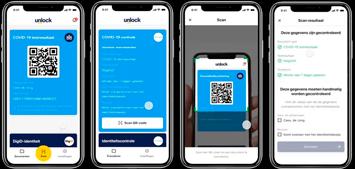
5 minute read
Leiden Law School
from About us 2021
Leiden Law School aims for excellent international and innovative research over the full breadth of the law. Every year over 1,000 students begin a bachelor’s degree in Law, Notarial law, Tax Law or Criminology. A further 500 to 600 international students also come to the Faculty every year, from exchange students to students who have been selected for one of our advanced master’s programmes.
Leiden Law School is housed in two beautifully restored historical buildings in the centre of Leiden. Its staff also teach and conduct research at Campus The Hague, and its Grotius Centre for International Legal Studies has a presence in The Hague too. The Law School aims to foster international collaboration, and has over 80 exchange agreements.
RESEARCH The Faculty’s research leads to dissertations, books and other academic publications. Its staff also inform the public debate through media appearances and popular publications. At present, there are eight
research programmes at Leiden Law School: • The Legitimacy and Effectiveness of Law & Governance in a World of Multilevel
Jurisdictions • The Progression of EU law: Accommodating
Change and Upholding Values • Effective Protection of Fundamental Rights in a Pluralist World • Exploring the Frontiers of International Law • Criminal Justice: Legitimacy, Accountability and Effectivity • Coherent Private Law • Reforming Social Legislation • Limits of Tax Jurisdiction.
Graduate School
The Graduate School of Legal Studies is part of the Meijers Research Institute, and its responsibilities include the Law School’s PhD programmes.
TEACHING In the teaching at Leiden Law School the emphasis lies on the Dutch legal system. This is the area in which many of its alumni work, often in high-profile roles, for instance in the judiciary or the legal profession, or in government. To ensure that it can respond to developments in the job market, the Faculty is constantly changing its range of programmes. In the last few years, it introduced master’s programmes in Financial Law, Labour Law and – unique in the Netherlands – Child Law. Its teaching is intensive and provides a wealth of opportunities for talented students.
Alongside the regular programmes, the Faculty offers online courses and a range of post-doctorate training programmes for lawyers and other law graduates or professionals whose work has a legal slant. It also offers summer schools for students and professionals, organised together with international partners.
FACTS AND FIGURES 2020
6,015 students: 3,887 bachelor’s students and 2,128 master’s students
580 staff (385 academic and 195 non-academic)
Institutes:
• Institute for Criminal Law • Institute for Interdisciplinary Study of the Law • Institute for Private Law • Institute for Public Law • Institute of Tax Law and Economics
36 doctorates
Top-25 of the QS World University Rankings and THE World University Rankings by Subject (best law faculty in the Netherlands).
BACHELOR’S PROGRAMMES
• BSc in Criminology • LL.B in Law • LL.B in Notarial law • LL.B in Tax Law
MASTER’S PROGRAMMES
• LL.M. in Advanced Studies in Air and Space Law • LL.M. in Advanced Studies in European and International Business Law • LL.M. in Advanced Studies in European and International Human Rights
Law • LL.M. in Advanced Studies in Global & European Labour Law • LL.M. in Advanced Studies in International Children’s Rights • LL.M. in Advanced Studies in International Civil and Commercial Law • LL.M. in Advanced Studies in International Dispute Settlement and
Arbitration • LL.M. in Advanced Studies in Law & Digital Technologies • LL.M. in Advanced Studies in Law & Finance • LL.M. in Advanced Studies in Public International Law • LL.M. in Child Law • LL.M. in Law • LL.M. in Notarial law • LL.M. in Tax Law • MSc in Crime and Criminal Justice • MSc in Forensic Criminology • MSc Law & Society
Working from home good for wellbeing
Maral Darouei was awarded a PhD in June for research into the effects of working from home, a subject that has become more topical than ever since the coronavirus outbreak. In her research Darouei describes the effect of certain factors on our career success. ‘My research shows that employees experience less time pressure and fewer work-family conflicts. This suggests that the daily decision to work from home can help create a sustainable career. However, employees who regularly work from home do receive lower performance appraisals. This is because their managers believe their “work centrality”– the importance people attach to their work – and commitment to the organisation to be lower.’

New platform for information about children’s rights
Leiden Children’s Rights Observatory is an open access online database on children’s rights that serves as a platform for discussions on children’s rights issues all around the world. Initiator and Professor of Children’s Rights Ton Liefaard: ‘The Committee on the Rights of the Child in Geneva considers complaints by children about violations of their rights. A need emerged for knowledge about this right to complain. The platform collects case notes by experts all around the world on decisions made by this Committee. Authors on the platform describe current developments in children’s right to complain. And researchers publish analyses of tricky legal issues. This helps in the academic and societal debate about children’s rights.’


Law students investigate cold cases
The Cold Cases course is a collaboration between Leiden University and the police, and focuses on cold cases: unsolved homicides or major crimes with a minimum penalty of 12 years. The aim of the course is to analyse such a case and to come to new insights. A group of 15 students are supervised as they set to work on a case chosen by the police. The students analyse the case files and write an action plan for the investigation. This is a good example of collaboration between Leiden Law School and partners from the profession.
Consortium builds coronavirus test app
The uNLock consortium has developed an open source, non-profit app that verifies corona tests at the maximum level of security. The app is based on privacy-by-design: a visitor is admitted to the coronavirus test without data being stored or more being found out about this visitor than that they meet the entry requirements. The consortium includes Leiden University, Delft University of Technology and business partners. Leiden Law School is providing information on privacy, human rights and data protection. ‘The collaboration between experts in law and in technology ensures well-conceived solutions and maximum privacy,’ said Bart Custers, Professor of Law and Data Science.












